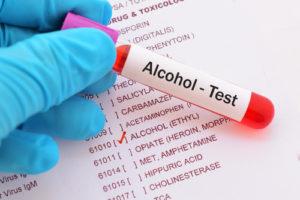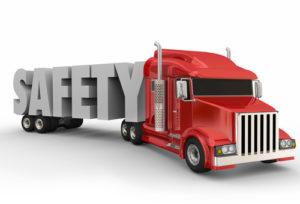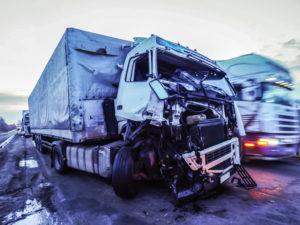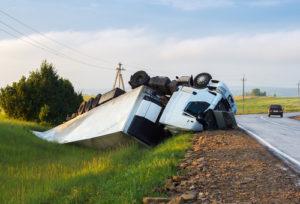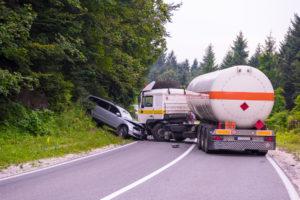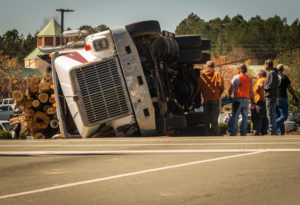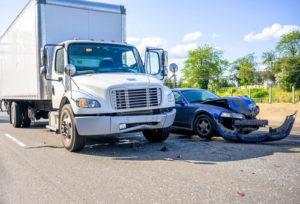

You must take several specific steps at the scene of a truck accident to ensure your safety and well-being, as well as the welfare of other people involved in the accident. Following these steps can also protect your legal right to recover compensation for your injury-related losses.
These steps include:
- Contacting law enforcement
- Getting medical attention
- Documenting what you can
- Watching what you say
- Calling a lawyer
Reading on will help you to better understand these steps and why they matter.
Contacting the Police
The law requires that you stay at the truck accident scene and assist other people who were injured in the accident, if you can do so. One way you are expected to help is to call 9-1-1 and report the accident. Police and emergency responders will be dispatched to the scene. When the police arrive, give them the facts of the collision and be sure to get a copy of the accident report.
This report serves as an important piece of evidence later, in the event you suffer
damages from the accident and seek compensation from the at-fault party.
For a free legal consultation, call (614) 538-1116
Getting Medical Attention
When an ambulance arrives at the scene, paramedics will likely ask you if you would like them to evaluate your medical condition. Regardless of whether you think you have suffered an injury, you should agree to this evaluation. Many injuries do not immediately manifest symptoms—sometimes it takes days or even weeks for certain types of injuries to show themselves in a way you will recognize as problematic.
If you wait until much later after the collision to see a doctor, it will be harder to prove that your injuries resulted from the truck accident. This means you will struggle much more than necessary to get the at-fault party’s insurance company to cover your medical expenses, lost income, pain and suffering, and other damages. An emergency medical technician who responds to the accident scene will know how to spot signs of possible injuries and can draw a direct line between them and the collision.
Documenting What You Can
While you are waiting for the police and ambulance to arrive at the scene, do as much as possible to gather evidence; of course, you should do this only if your physical condition permits it. Do not put yourself and others in harm’s way in the process of securing evidence.
Photos
Documenting the scene involves taking photos—of your injuries, of any damage to your car and other vehicles involved in the crash, and of the scene in general, including skid marks, obstacles, and/or debris on the road. If inclement weather played a role in your crash, try to photograph evidence to that effect. If poor road conditions or lighting contributed to the collision, take pictures of these factors.
Contact Information
Ideally, you should walk away from the truck accident scene with contact information and other details connected to any other individual who was involved in (or witnessed) the collision. Try to get the names, addresses, phone numbers, and email addresses of these people. For individuals involved in the accident, get their insurance company name, insurance policy number, and driver’s license number.
For the truck involved in the crash, record the license plate number, as well as the name of the trucking company and/or the organization that employs the truck driver.
Your Condition
Besides getting a medical evaluation from the first responders, consider jotting down how you feel, both physically and emotionally, after the truck accident. The notes you take could help a healthcare provider to better diagnose any possible injuries. Similarly, your emotional state can lay the groundwork for the psychological trauma you suffered from the collision.
Click to contact our personal injury lawyers today
Watching What You Say
You want to cooperate with the police when they ask you for your account of events. However, you should restrict your commentary to the facts. Do not elaborate on things you do not know for certain. Most importantly, do not admit fault or liability.
The police do not need anyone to admit fault, as their training in assessing the scene helps them determine how the accident happened. By admitting fault, you box yourself in with a statement that will be recorded and later come back to haunt you. It could be much harder to recover damages if you admitted to causing the accident that caused your injuries.
Watch Your Words Around the Insurance Company
The same advice holds for talking to the insurance company. They will likely call you soon after the accident. Despite their sympathetic tone, they are not on your side. Anything you say to an insurance company representative can and will be used against you in your attempt to collect compensation. Before you talk to an insurer, talk to a lawyer.
Complete a Free Case Evaluation form now
Hiring a Lawyer
As soon as possible after your truck accident, you should consider calling a lawyer. Your legal counsel will best be able to build your case if they have access to fresh evidence at the scene. Possibly, they will want to take steps to confiscate the truck so they can analyze it for evidence before the trucking company has the opportunity to destroy or hide evidence that could damage their defense against your personal injury claim.
Also, each state enforces a statute of limitations limiting the amount of time you have to file a lawsuit after a truck accident. The sooner you hire a lawyer, the more time you give them to construct a strong case on your behalf.
Call Us at the Scene of Your Truck Accident
According to the Federal Motor Carrier Safety Administration, between 2017 and 2018, injury crashes involving large trucks saw a five percent increase. Keep the above suggestions in mind in case you suffer injury in a truck collision.
When you call Bressman Law at the scene of a truck accident, you can tell us about your accident, and we can inform you of your legal options. We work on contingency, meaning you pay us only if and when we win your case.
Call Bressman Law today for a free case review: (877) 538-1116.
Call or text (614) 538-1116 or complete a Free Case Evaluation form

